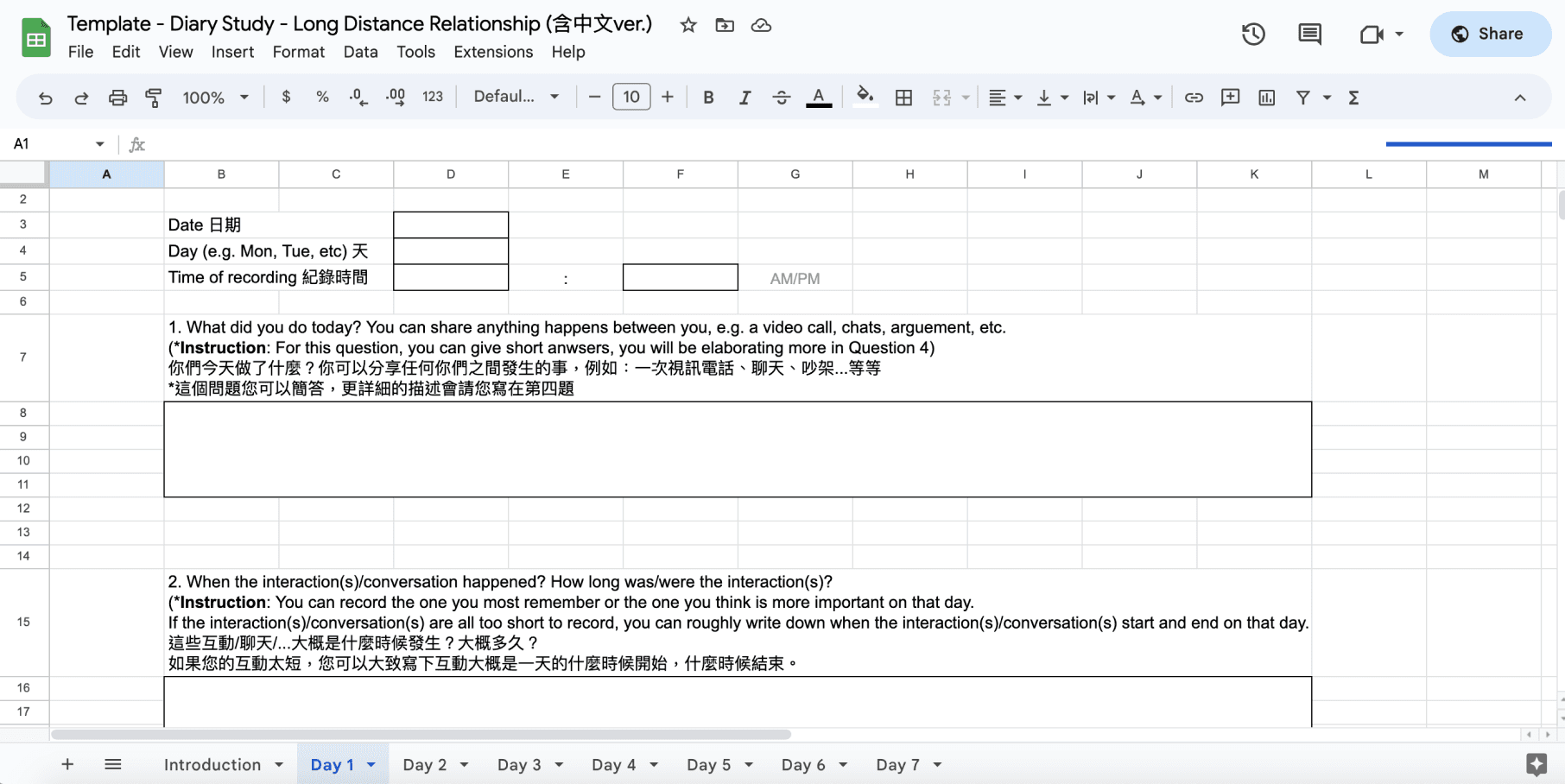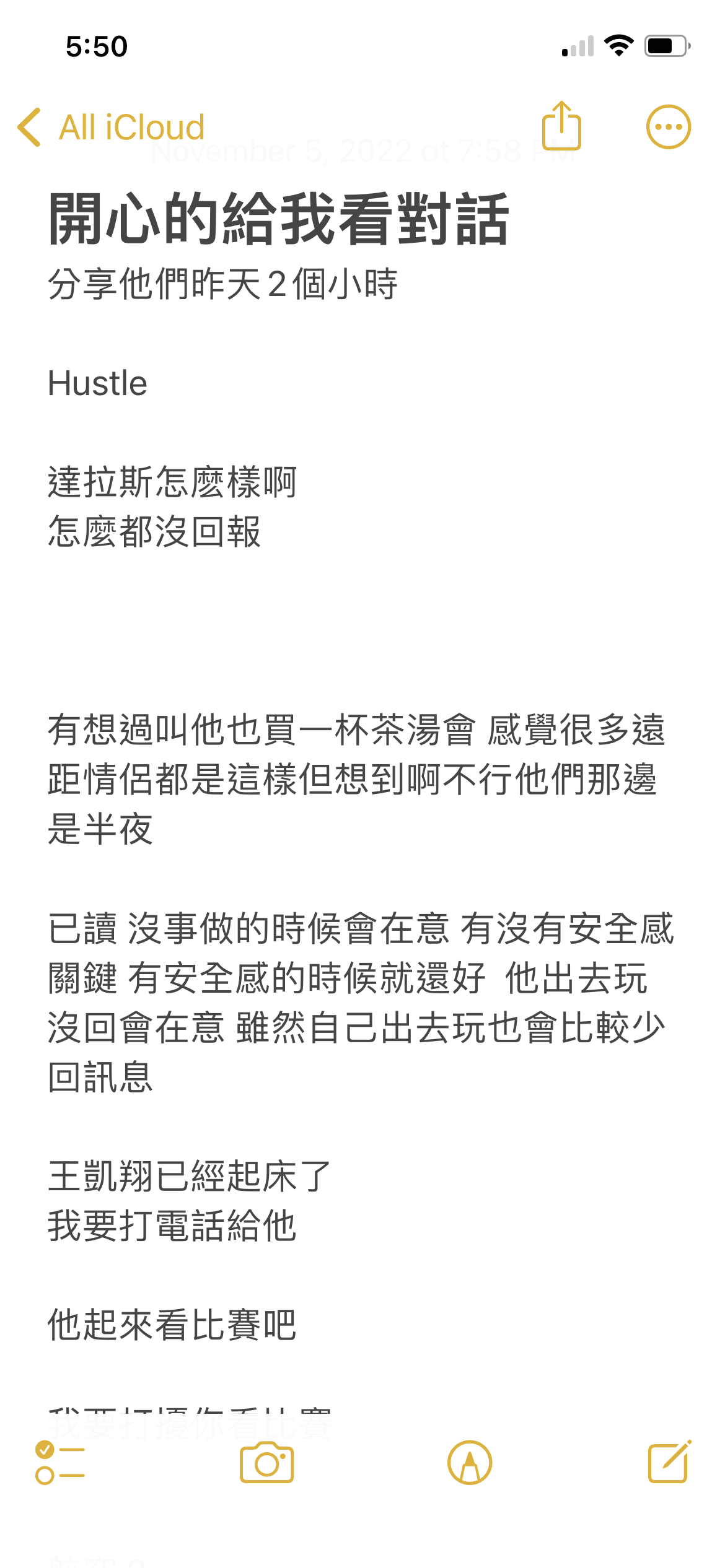An Ethnography Study of Long Distance Relationship
Overview
Timeline
My Role
2 months
Literature review
Set research question
Plan research
Conduct research
Synthesize finding
Present findings
People in Long Distance Relationship (LDR) means they are geographically separated.
time difference
physical distance
RQ #1 How do LDR couples perceive both distance and relationship?
RQ #2 What are the factors that affect their relationship?
RQ #3 What are the roles technology play in LDR?
Due to the barriers, LDRs are commonly thought to be hard to maintain. I also feel that in my own experience.
According to past studies, LDRs are not always reported with lower satisfaction. Different situations such as stage of relationship, distance, frequency of meet or personal factors matter. Given the inconsistent findings, there is still a need in understanding LDRs. Does distance really matter? What do they think about distance? What actually affects their experience and outcome of their relationships?
distance
stage of relationship
frequency of meet
personal factors
However, LDRs are not always prone to failure
Ethnography Study
Diary study
Interview
Observation
STEP 1
Diary Study

Since couple’ interactions can happen in any time, it may be hard for people to recall these experience during interviews.
I conducted a 5-7 days digital diary study to collect LDR couples’ real-time interactions and the feelings they have at the moment. Participants are required to log the interactions for each day. They are encouraged to share other materials if they are willing to. (e.g. screenshot of chat, pictures & videos )
Collect Real Interactions
STEP 2
In-depth Interview






After diary study, I did 45 min in-depth interviews with the participants to further understand the why behind their diaries.
Get the “WHY” behind diaries
Observation
Besides diary study and interviews, I also observe participants’ behaviors in their daily life and through my online interaction with them.
Understand more “Context”

